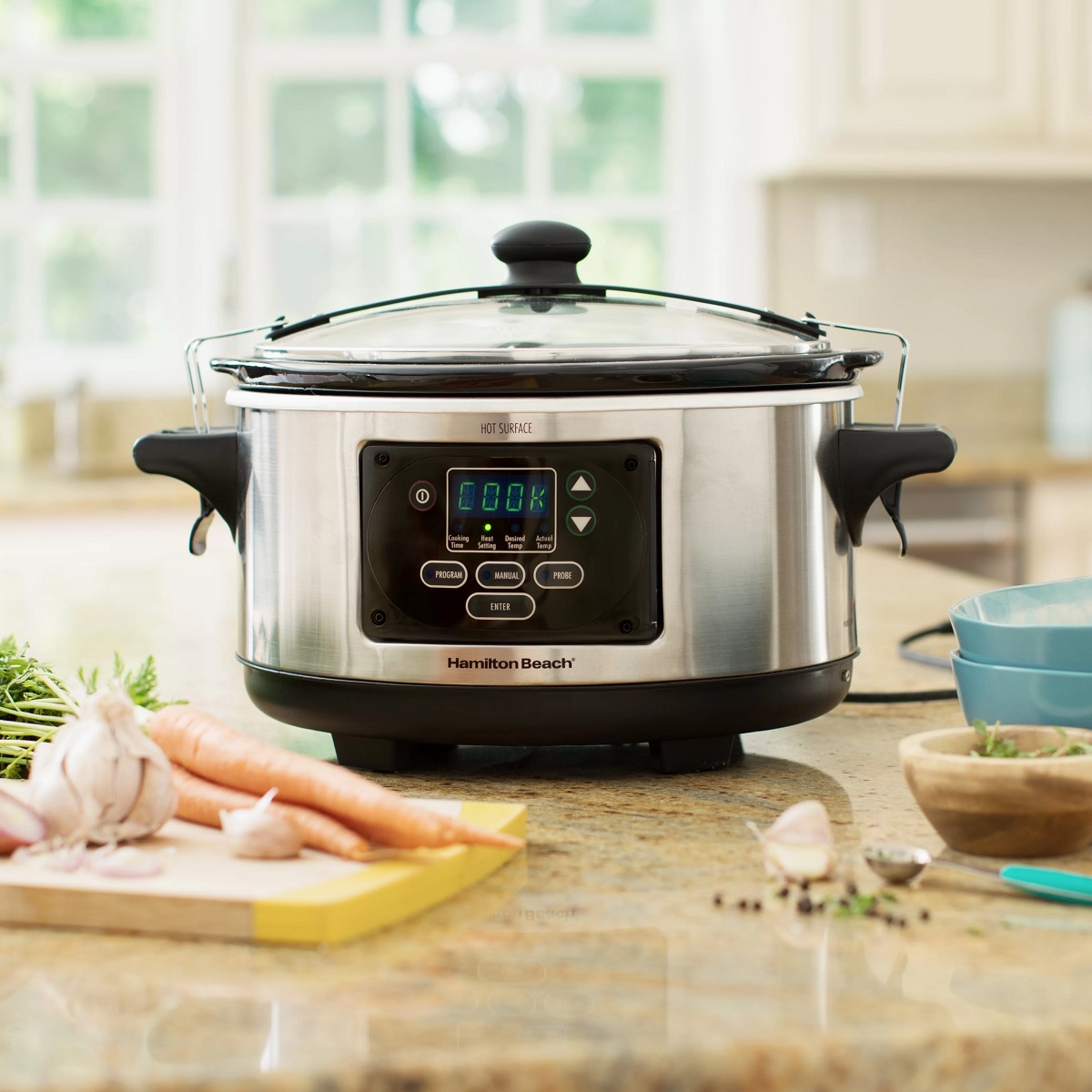

Articles
When Was The Slow Cooker Invented
Modified: January 5, 2024
Discover the history of the slow cooker and learn when this beloved kitchen appliance was first invented. Read our informative articles to find out more.
(Many of the links in this article redirect to a specific reviewed product. Your purchase of these products through affiliate links helps to generate commission for Storables.com, at no extra cost. Learn more)
Introduction
Cooking has evolved tremendously over centuries, from primitive methods of open-fire cooking to modern-day appliances that make our culinary endeavors easier and more efficient. One such culinary innovation that has become a staple in many kitchens is the slow cooker. This remarkable appliance revolutionizes the way we approach cooking, allowing us to prepare savory, tender meals with minimal effort.
In this article, we will explore the fascinating history and development of the slow cooker. We will uncover the origins of this beloved kitchen gadget, delve into its early iterations, and examine how it has evolved to become a popular household appliance. Along the way, we will discover the impact and benefits of slow cooking in our busy modern lives.
So, join us on this journey as we unravel the fascinating story of the slow cooker, from its humble beginnings to its position as a must-have kitchen appliance.
Key Takeaways:
- The slow cooker, from its early origins to modern advancements, has revolutionized meal preparation, offering convenience, flavorful results, and economic savings. Its impact on culinary practices is profound, simplifying cooking while delivering delicious, wholesome meals.
- Slow cookers have transformed the way we approach cooking, providing time-saving options, healthier meals, and energy efficiency. From tender roasts to delectable desserts, the slow cooker continues to enhance our culinary experiences with its versatile and convenient cooking method.
Read more: When Was The Rice Cooker Invented
Early History of Cooking Techniques
Cooking is a fundamental human activity that dates back thousands of years. In the early days, our ancestors relied on simple cooking techniques to prepare their meals. These primitive methods included roasting meat over an open fire, boiling grains and vegetables in pots, and using hot stones or earth ovens for baking.
As civilizations advanced, so did the cooking techniques. The invention of clay pots and the discovery of metalworking allowed for more efficient and controlled cooking. People began experimenting with various methods to slow-cook food, seeking to enhance flavors and tenderize tougher cuts of meat.
One such technique was using a Dutch oven, which is essentially a deep, heavy pot with a tight-fitting lid. This enabled slow and even cooking over a low fire, ensuring that the food remained moist and flavorful. Simmering and braising also became popular methods of slow cooking, with the use of low heat and liquid to cook food slowly over an extended period of time.
These early cooking techniques laid the foundation for the development of the slow cooker. They showcased the benefits of slow and gentle cooking, resulting in more flavorful and tender dishes.
Evolution of Cooking Appliances
As society progressed and technological advancements were made, cooking appliances began to evolve. The introduction of stovetops and ovens brought more convenience and control to the cooking process. However, these appliances still required constant monitoring and adjustments to ensure optimal results.
In the 20th century, the development of electrical appliances revolutionized the cooking industry. Electric stoves and ovens offered more precise temperature control and simplified the cooking process. This newfound convenience inspired inventors to explore other ways to make cooking even easier and more efficient.
In the 1930s, the first electric slow cookers made their appearance. These early versions consisted of a heating element encased in a metal pot, which was designed to be placed on a stovetop. While these early slow cookers were not entirely automated, they provided a means to slow-cook food without the need for constant supervision.
Throughout the mid-20th century, slow cooker designs continued to evolve. Innovations included the integration of thermostats to regulate temperature and the addition of removable pots for easier cleaning. These improvements made slow cookers more user-friendly and contributed to their growing popularity.
It wasn’t until the 1970s that the modern slow cooker, as we know it today, emerged. With the introduction of the Crock-Pot by Rival Company, slow cooking became more accessible to households across the United States. The Crock-Pot featured a ceramic pot that could be directly heated by an electric base, eliminating the need for stovetop use. This allowed for a safer and more convenient cooking experience.
Over the years, manufacturers have continued to refine and enhance slow cookers. Additional features like programmable timers, multiple heat settings, and even smart capabilities have been incorporated into newer models, making slow cookers more versatile and adaptable to different recipes and lifestyles.
The evolution of cooking appliances, including the development of slow cookers, has greatly shaped the way we approach meal preparation, emphasizing convenience and efficiency without compromising flavor and taste.
The Invention of the Slow Cooker
The invention of the slow cooker can be attributed to Irving Naxon, an American inventor of Jewish descent. Naxon drew inspiration from his Lithuanian grandmother, who used to slow-cook traditional Jewish dishes in a communal oven known as a “shabbat pot.”
In the 1940s, Naxon patented his invention, which he called the “Naxon Beanery.” This early slow cooker consisted of a ceramic pot encased in an insulated metal shell. It had an electric heating element and a thermostat to regulate the temperature. The Naxon Beanery was designed to be used as a portable appliance, allowing users to cook meals ahead of time and transport them to outdoor events or potlucks.
Naxon’s invention gained some recognition, but it wasn’t until the 1970s that the slow cooker truly took off in popularity. Rival Company, under the leadership of Robert Glen Russell, acquired the rights to Naxon’s invention and introduced it to a wider market as the Crock-Pot.
The Crock-Pot, with its practical design and ease of use, quickly became a household name. Its affordability and convenience made slow cooking accessible to busy families, who could now prepare wholesome and delicious meals with minimal effort.
The Crock-Pot’s success can be attributed to several factors. First, its low and slow cooking method allowed for tenderizing tough cuts of meat and incorporating flavors over an extended period of time. Second, the set-and-forget nature of slow cooking appealed to individuals seeking convenience in their busy lifestyles. Finally, the ability to leave the slow cooker unattended, unlike traditional stovetop cooking, added an element of safety and peace of mind.
Since its introduction, the Crock-Pot has become synonymous with slow cooking. It paved the way for other manufacturers to develop their own versions of slow cookers, further fueling the popularity of this kitchen appliance. Today, slow cookers come in various sizes, styles, and features, catering to different cooking needs and preferences.
The invention of the slow cooker revolutionized meal preparation, providing a convenient solution for busy individuals who still crave hearty and homemade dishes. It offered a way to create flavorful meals with minimal hands-on time, making it a beloved kitchen companion for many households.
The slow cooker was invented in 1940 by Irving Naxon, who patented the Naxon Beanery, a slow cooker inspired by his grandmother’s traditional cooking methods.
First Patent and Commercial Availability
The first patent for a slow cooker, known as the Naxon Beanery, was granted to Irving Naxon in the 1940s. However, it wasn’t until the 1970s that slow cookers gained commercial popularity and became a staple in many households.
Robert Glen Russell, the CEO of Rival Company, recognized the potential of Naxon’s invention and acquired the rights to the slow cooker. Under the Rival Company, the slow cooker was rebranded and introduced to the mass market as the Crock-Pot.
The Crock-Pot revolutionized home cooking, offering an affordable and convenient way to prepare meals. Initially marketed towards working individuals and busy families, the Crock-Pot quickly gained recognition for its time-saving benefits and the ability to produce delicious and tender dishes.
Rival Company focused on the advertising and promotion of the Crock-Pot, showcasing its versatility and ease of use. They highlighted the set-and-forget aspect of slow cooking, emphasizing how users could simply prepare the ingredients, turn on the heat, and come home to a mouthwatering meal hours later.
With its unique selling proposition and widespread advertising campaigns, the Crock-Pot gained significant popularity. Slow cookers became a common fixture in American kitchens, allowing families to enjoy homemade, flavorful meals even when time was limited.
In addition to Rival Company, other manufacturers recognized the growing demand for slow cookers and began producing their own versions. Different styles, sizes, and models hit the market, catering to various cooking needs and preferences.
The commercial availability of slow cookers made them accessible to a wider audience. The affordability of the appliances, combined with their convenience and ability to transform inexpensive cuts of meat into delectable meals, contributed to their widespread adoption.
Over time, slow cookers found their way into international markets as well. The appeal of easy meal preparation and the allure of tender, flavorful dishes proved to be universal.
Today, slow cookers are not only available in physical stores but also through online retailers and e-commerce platforms. With advancements in technology, modern slow cookers offer additional features such as programmable timers, digital displays, and even smart connectivity.
The availability and accessibility of slow cookers have transformed the way people approach meal preparation. They have become an essential tool for those seeking convenience, time-saving options, and flavorful results in their cooking endeavors.
Popularity and Advancements in Slow Cooking
Throughout the years, slow cooking has gained immense popularity and has become a beloved cooking method for many households. The convenience, versatility, and mouthwatering results have contributed to its widespread appeal.
One of the key factors behind the popularity of slow cooking is the ability to create flavorful and tender dishes. Slow cooking allows flavors to develop and meld together over an extended period of time. This results in deep, rich flavors and succulent textures that are difficult to achieve with other cooking methods.
Furthermore, slow cooking is incredibly forgiving. It allows home cooks of all skill levels to create delicious meals without the need for constant supervision. The long cooking times and low temperatures ensure that food remains moist and tender, even if it is cooked for longer than anticipated.
Advancements in slow cooking technology have also contributed to its growing popularity. Manufacturers have continuously improved and expanded the features of slow cookers to meet the demands of modern home cooks.
One notable advancement is the introduction of programmable timers. These timers allow users to set precise cooking times, ensuring that their meals are ready when they need them. This is particularly beneficial for individuals with busy schedules who want to come home to a hot, homemade meal.
Another significant advancement is the addition of different heat settings. Most slow cookers now offer low, medium, and high heat options. This versatility allows for greater control over the cooking process, making it possible to adapt recipes to specific preferences and cooking times.
Furthermore, the development of slow cookers with removable pots has made cleaning and serving meals much more convenient. The removable pots are typically dishwasher-safe, making cleanup a breeze after a delicious meal.
Additionally, some modern slow cookers feature smart technology, allowing users to control and monitor the cooking process through a smartphone app. This enables users to adjust cooking times and temperatures remotely, providing even more flexibility and convenience.
Slow cooking has also evolved beyond the traditional savory dishes. People have discovered the versatility of slow cookers in preparing desserts, dips, and even beverages. The gentle heat of slow cooking can transform simple ingredients into delectable treats.
Furthermore, slow cooking has become popular in meal prepping, as it allows individuals to prepare large batches of food that can be portioned and enjoyed throughout the week. This not only saves time but also encourages healthier eating habits by having ready-to-eat, home-cooked meals available.
In recent years, there has also been a resurgence of interest in slow cooking as a way to embrace a more sustainable lifestyle. Slow cookers are energy efficient and utilize low heat for extended periods, minimizing energy consumption compared to stovetop or oven cooking.
Overall, the advancements in slow cooking technology, coupled with its versatility and convenience, have contributed to its enduring popularity. It has become a favorite cooking method for busy individuals, families, and anyone seeking to savor wholesome, flavorful meals without spending hours in the kitchen.
Impact and Benefits of Slow Cookers
Slow cookers have had a significant impact on the way we approach meal preparation and have benefited households in numerous ways. Let’s explore some of the key impacts and benefits of using a slow cooker.
Convenience: One of the most apparent benefits of slow cookers is their convenience. They allow busy individuals and families to enjoy homemade, delicious meals without spending hours in the kitchen. With minimal hands-on time, you can set up your ingredients, turn on the slow cooker, and let it work its magic while you attend to other tasks or relax.
Flavorful Results: Slow cooking enhances the flavors in food like no other cooking method. The long, gentle heat allows ingredients to release their natural juices and meld together, resulting in deep, complex flavors. Tough cuts of meat become tender and succulent, and spices and seasonings infuse every bite.
Economic Savings: Slow cooking can be cost-effective as it makes use of inexpensive cuts of meat that become tender and flavorful through the long cooking process. It also allows you to utilize pantry staples and make the most of seasonal produce, reducing waste and grocery expenses.
Healthier Cooking: Slow cooking is conducive to healthy eating. The low temperatures retain the nutrients in the ingredients, and the long cooking time allows flavors to develop without the need for excessive amounts of oils or fats. Additionally, slow cookers typically require little to no added water or oil, making it a healthier alternative to other cooking methods.
Time-saving Option: Slow cookers are a game-changer for individuals with busy schedules. By prepping ingredients ahead of time and allowing them to simmer all day or overnight, you can come home to a ready-to-eat meal. This not only saves time but also eliminates the stress of rushing to prepare dinner after a long day.
Versatility: Slow cookers are incredibly versatile. They can be used to prepare a wide variety of dishes, including soups, stews, casseroles, roasts, desserts, and more. From breakfast to dinner, and even party dips, slow cookers can handle it all. Plus, they are ideal for cooking in large batches, making them perfect for gatherings and meal prepping.
Energy Efficiency: Slow cookers are energy-efficient appliances. The long cooking times and low heat settings consume significantly less energy when compared to using the stovetop or oven for the same duration. This not only saves on energy bills but also contributes to a more sustainable kitchen.
Safe and Hands-off Cooking: Slow cookers provide a safe cooking method. Unlike traditional stovetop cooking, there is no need for constant supervision, reducing the risk of burning or overcooking food. Slow cookers are designed to be left unattended, allowing you to go about your day or sleep peacefully while your meal gently simmers away.
Reduced Heat in the Kitchen: Slow cookers generate much less heat in the kitchen compared to other cooking methods. This can be particularly beneficial during hot summer months when using the oven or stovetop can make your kitchen unbearably warm. Slow cookers help to keep your kitchen cool while still delivering delicious meals.
Overall, the impact of slow cookers on our culinary experiences is profound. From convenience and time-saving benefits to flavorful and wholesome results, slow cookers have become an invaluable tool in many kitchens, simplifying meal preparation and allowing us to enjoy delicious homemade meals with ease.
Conclusion
The slow cooker has undoubtedly made a remarkable impact on the world of cooking. From its humble beginnings as the Naxon Beanery to the widely recognized Crock-Pot, this kitchen appliance has revolutionized the way we approach meal preparation.
Throughout history, cooking techniques have evolved, and the slow cooker has emerged as a product of centuries of culinary innovation. Its ability to cook food slowly and gently has proven to be a game-changer, resulting in flavorful and tender dishes that captivate our taste buds.
The commercial availability and affordability of slow cookers, particularly the Crock-Pot, have made slow cooking accessible to households around the globe. The set-and-forget nature of slow cooking offers convenience to busy individuals, allowing them to come home to a comforting, home-cooked meal after a long day.
Advancements in slow cooking technology have contributed to its popularity. Features such as programmable timers, different heat settings, and removable pots have transformed slow cookers into versatile kitchen appliances that cater to various cooking needs and preferences.
The impact and benefits of slow cookers are far-reaching. They have made cooking more convenient and time-saving, while also delivering flavorful and nutritious meals. Slow cookers have become known for their economic benefits, as they allow home cooks to utilize inexpensive cuts of meat and make use of pantry staples.
Furthermore, slow cooking promotes healthier eating by retaining the nutrients in ingredients and reducing the need for added oils and fats. It has also encouraged sustainable living, as slow cookers are energy-efficient and minimize waste.
In conclusion, the slow cooker has become an indispensable tool in many kitchens, offering a convenient and flavorful approach to meal preparation. Its impact on culinary practices and its ability to simplify cooking while delivering delicious results cannot be overstated. Whether it’s a hearty stew, a tender roast, or a sweet dessert, the slow cooker continues to play a significant role in enhancing our culinary experiences.
Frequently Asked Questions about When Was The Slow Cooker Invented
Was this page helpful?
At Storables.com, we guarantee accurate and reliable information. Our content, validated by Expert Board Contributors, is crafted following stringent Editorial Policies. We're committed to providing you with well-researched, expert-backed insights for all your informational needs.
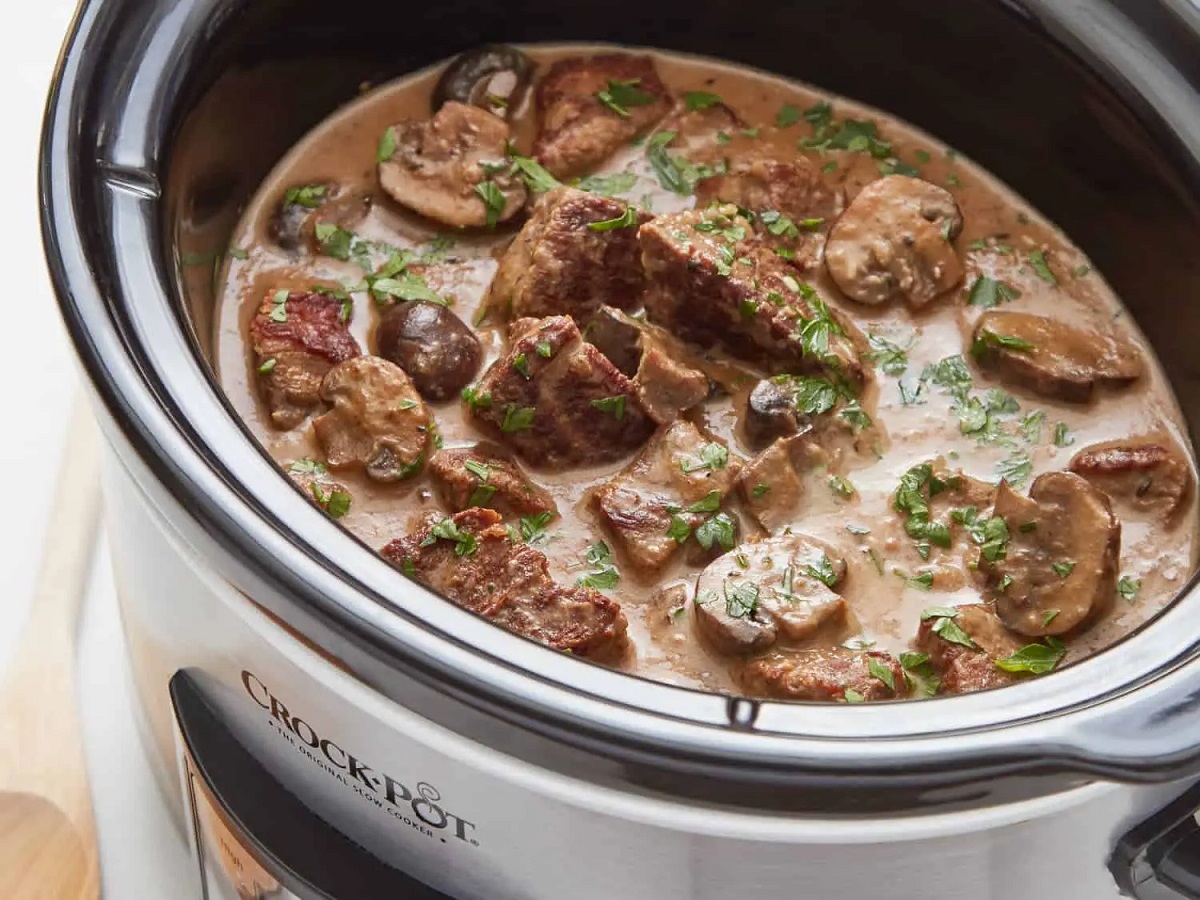
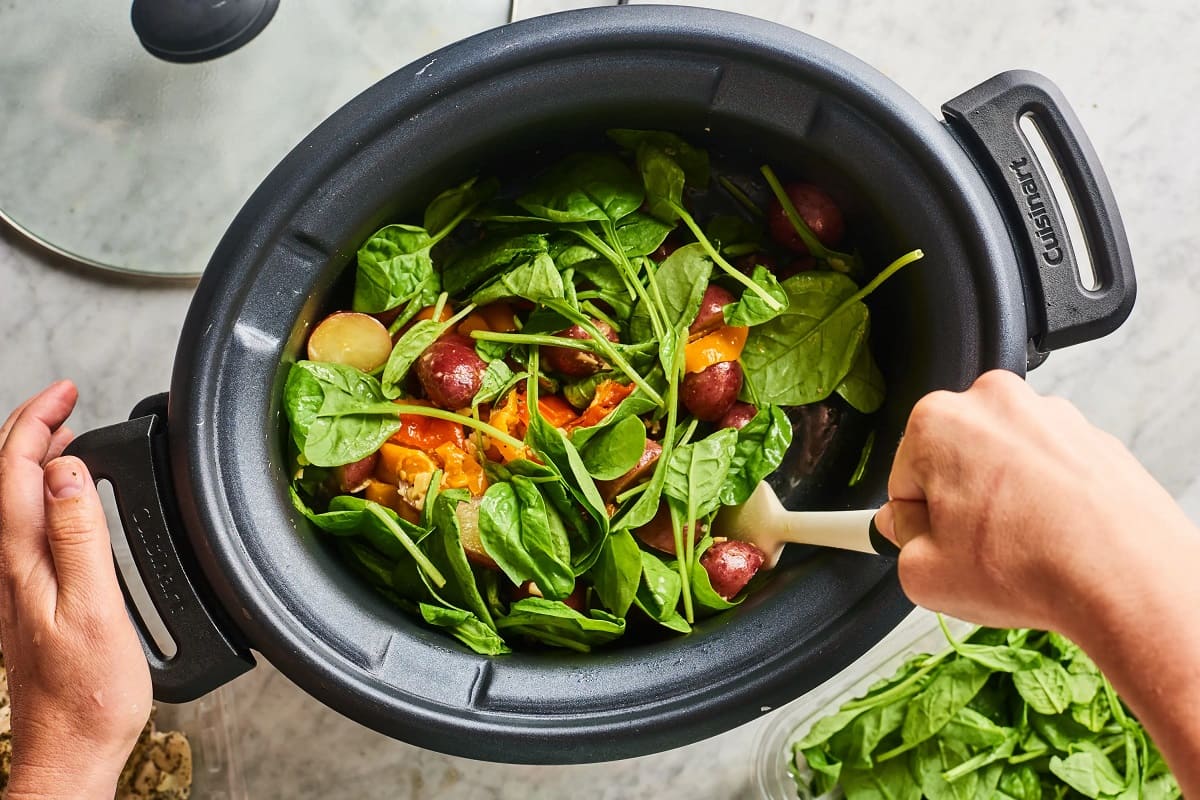
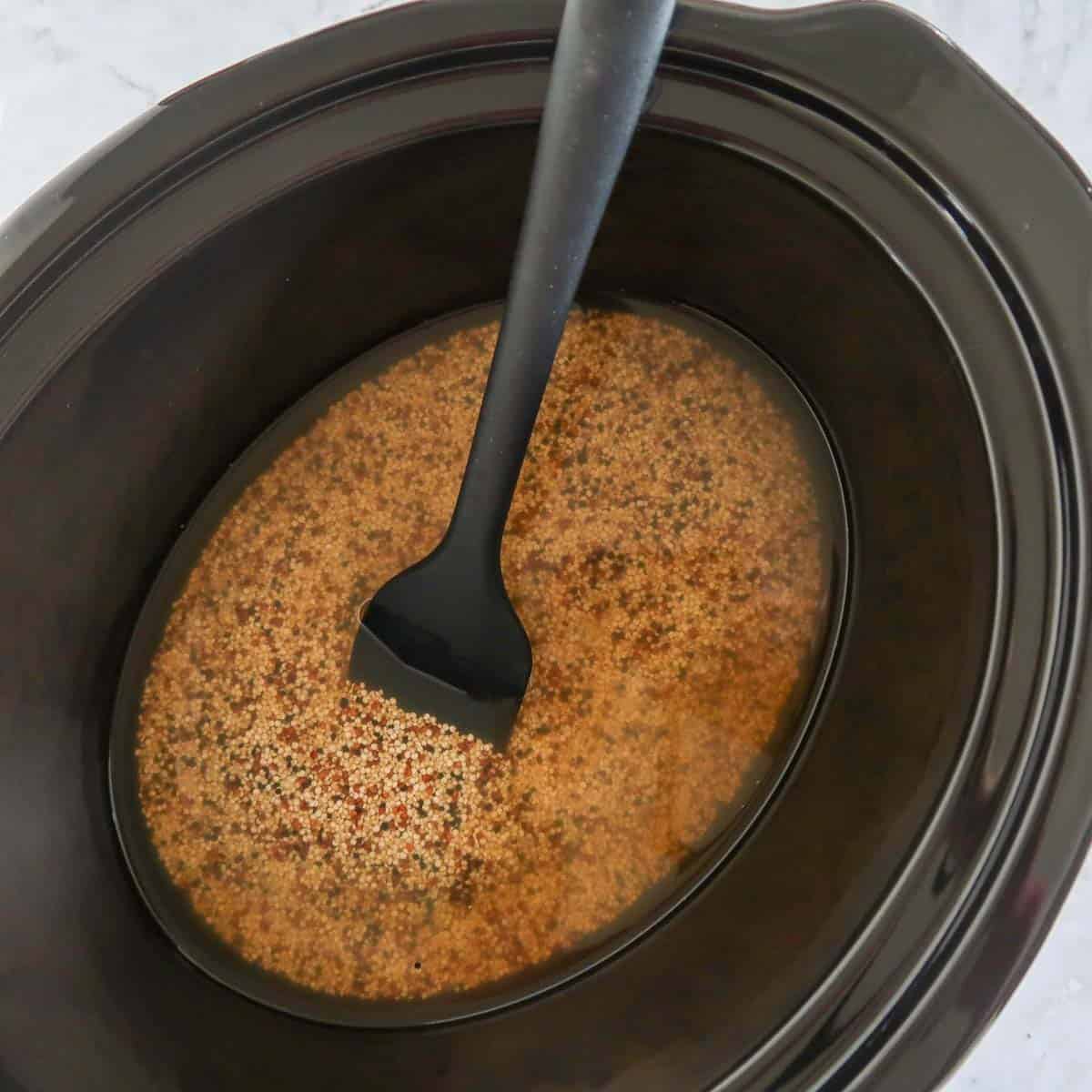
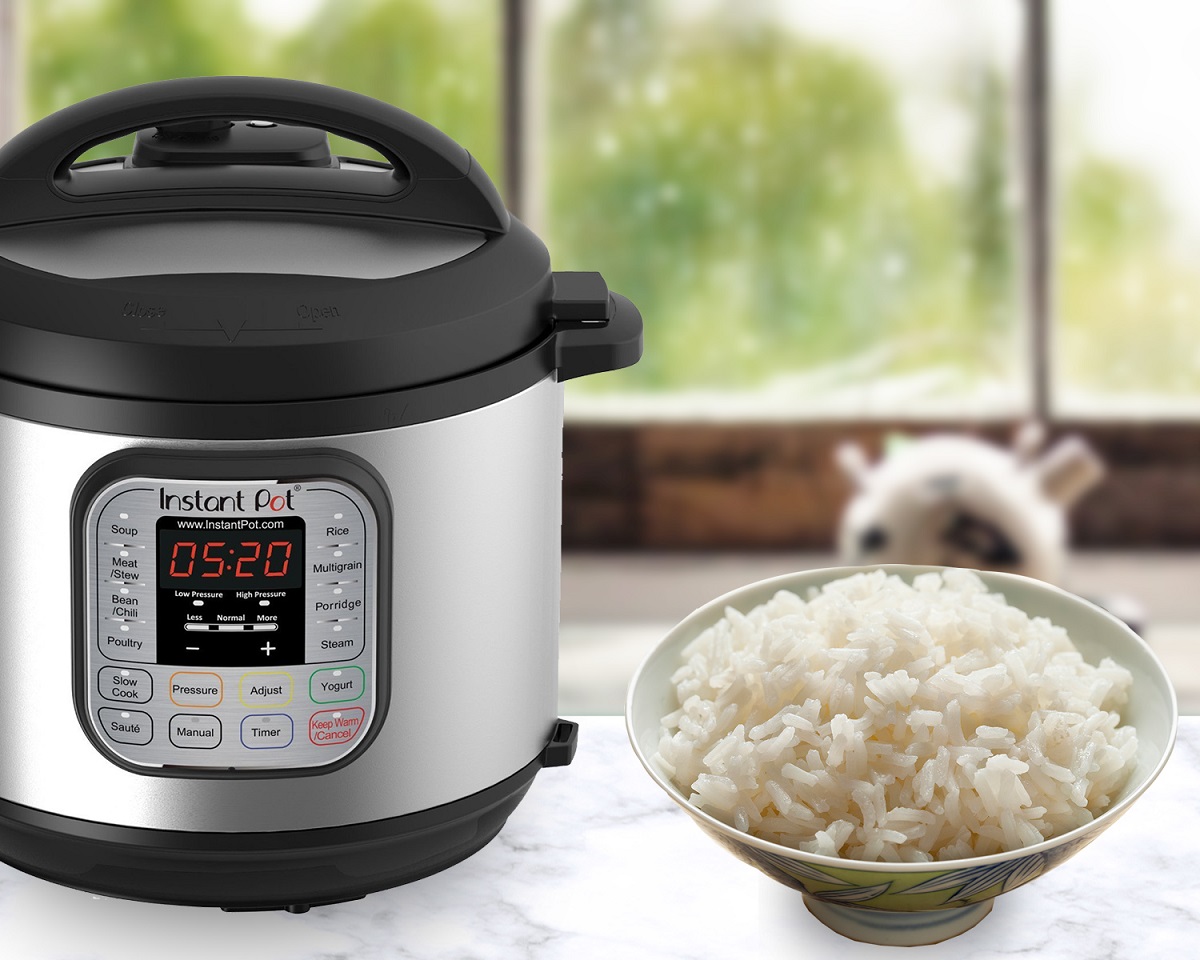
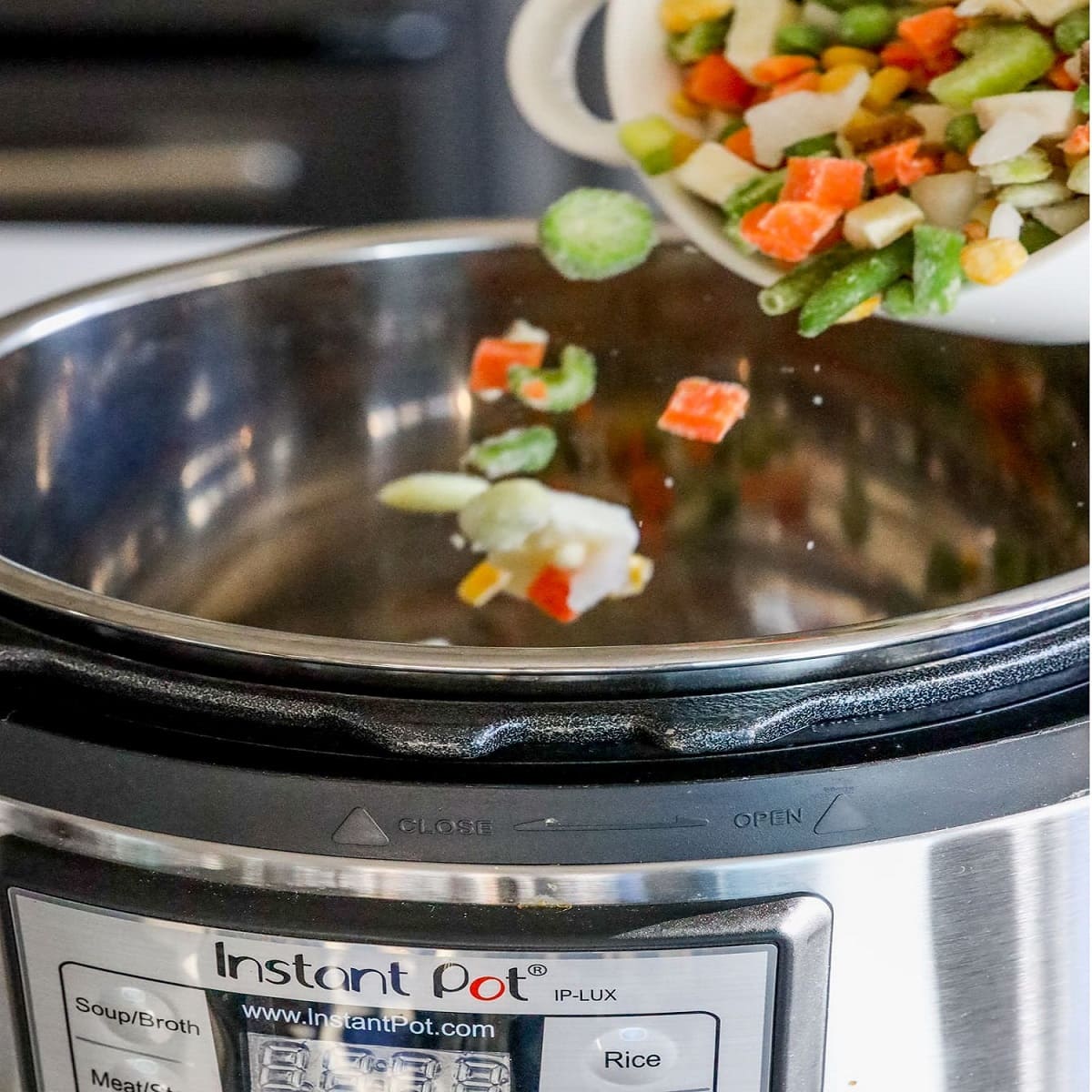
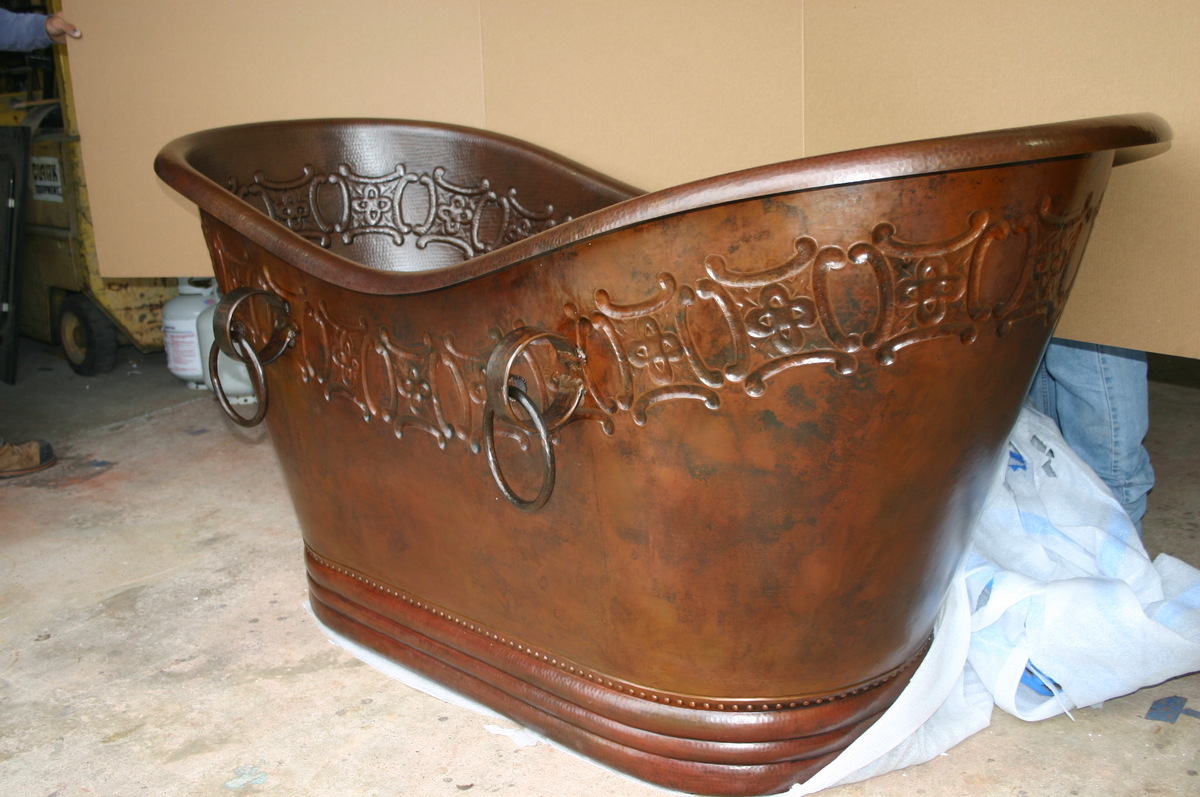
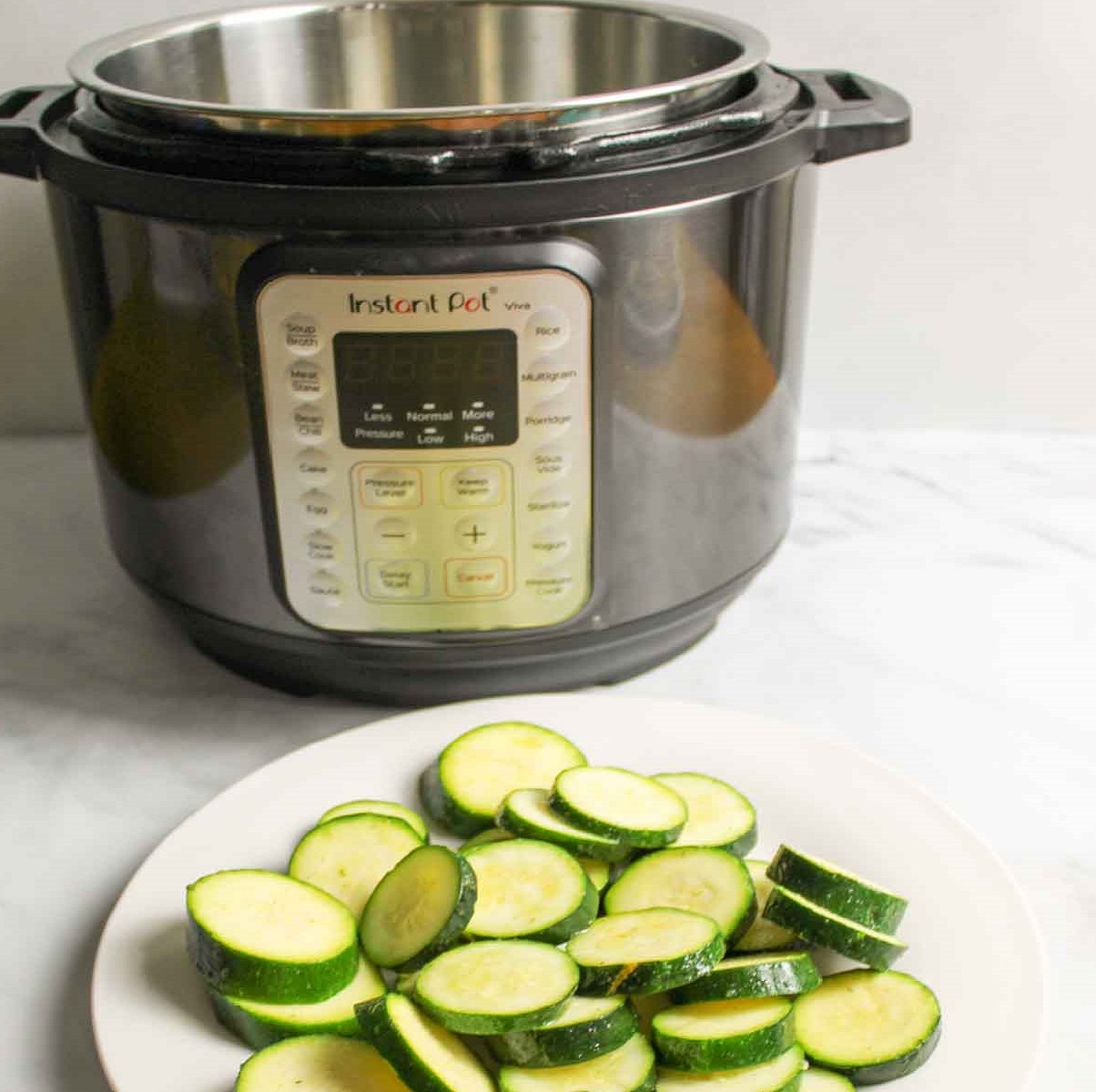
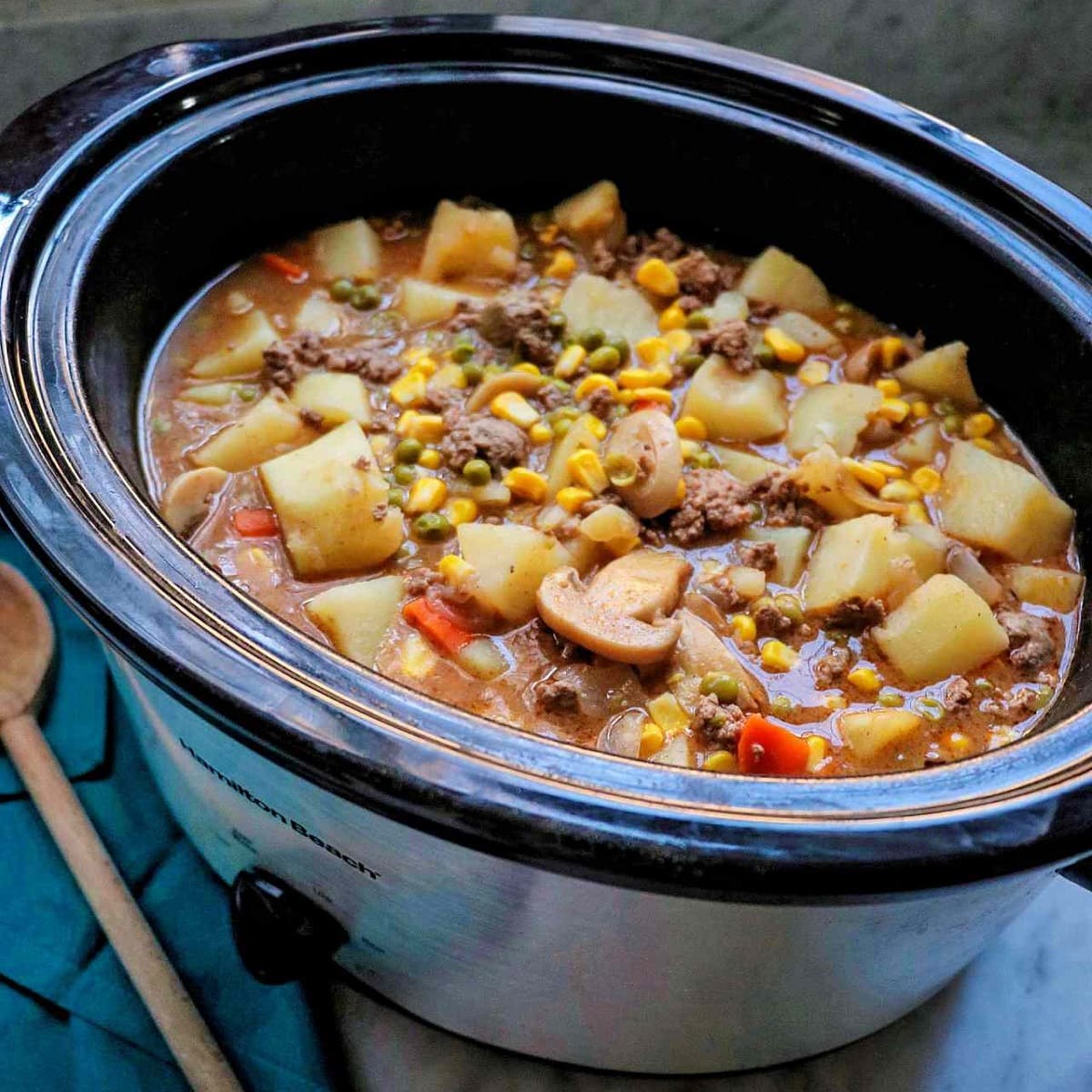


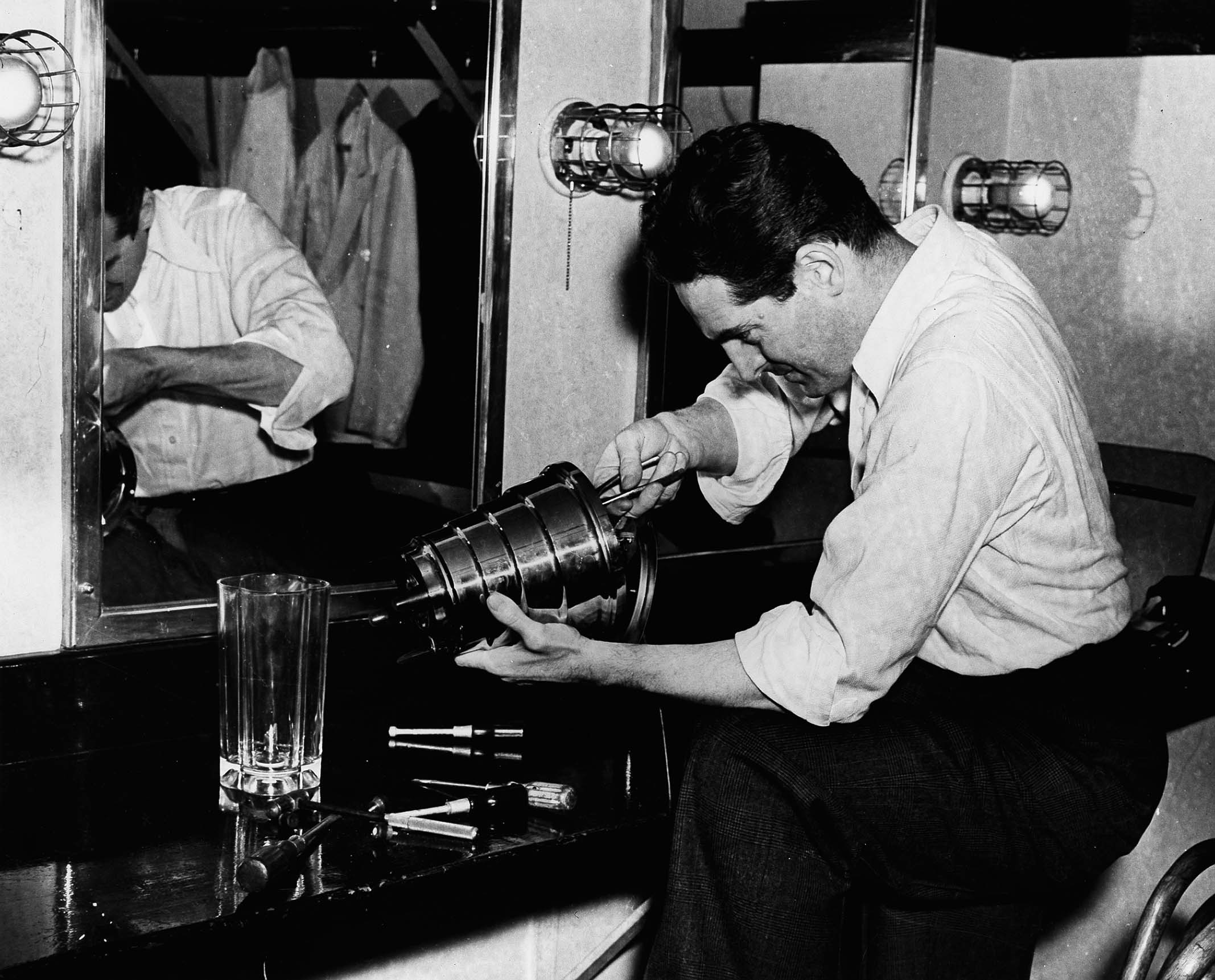
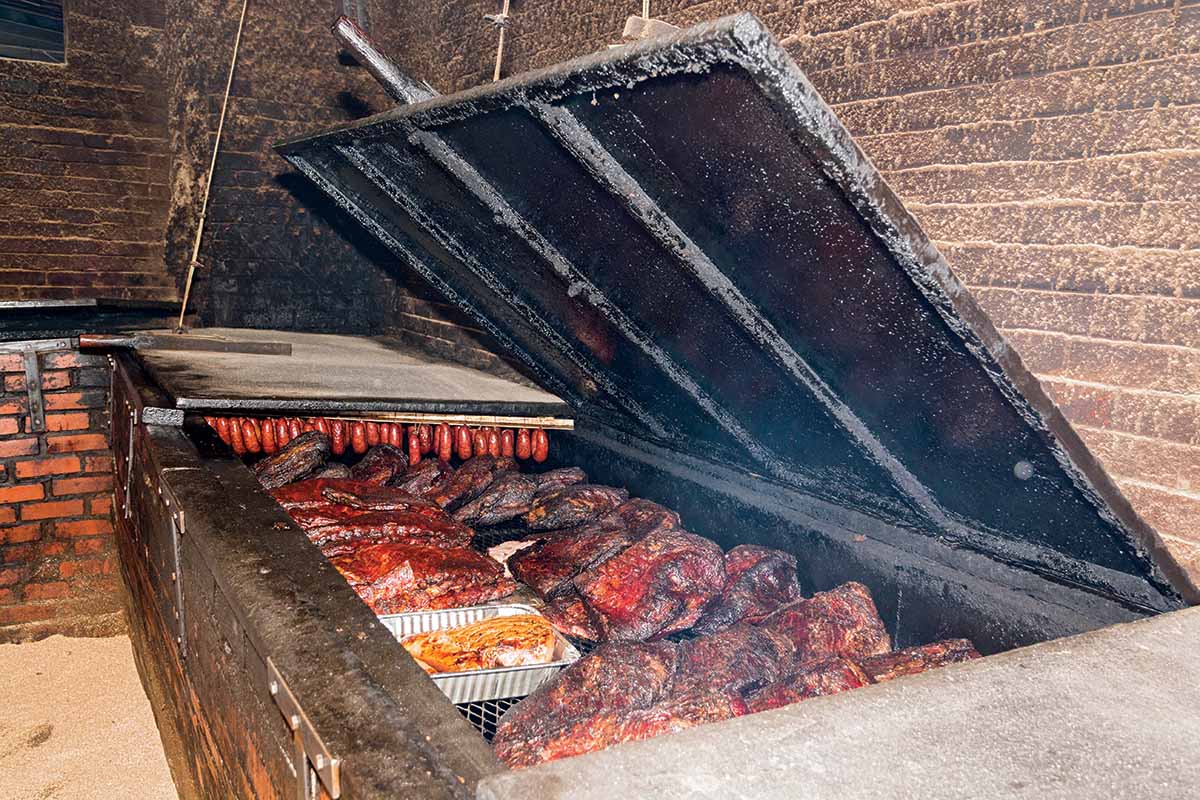



0 thoughts on “When Was The Slow Cooker Invented”